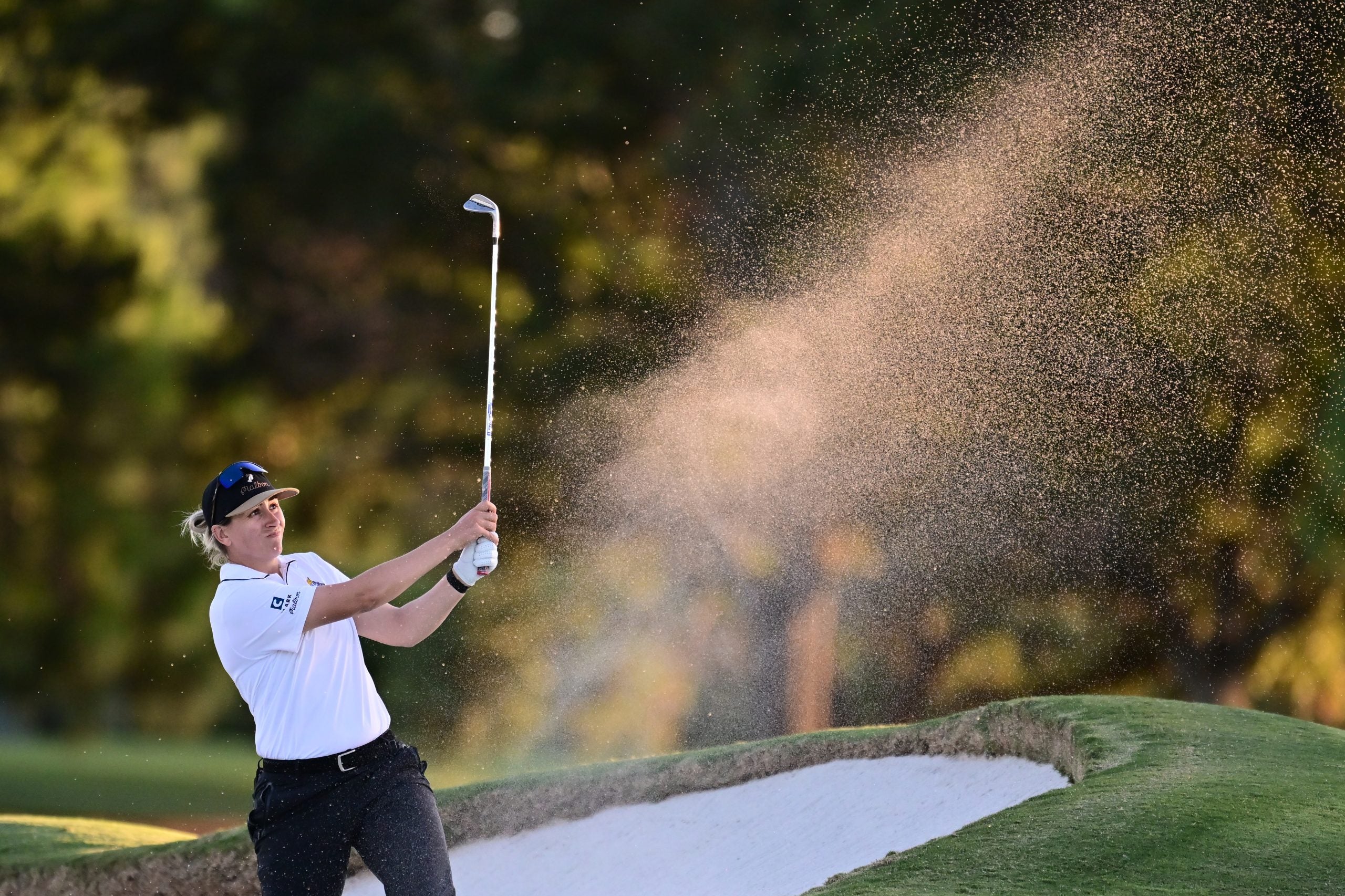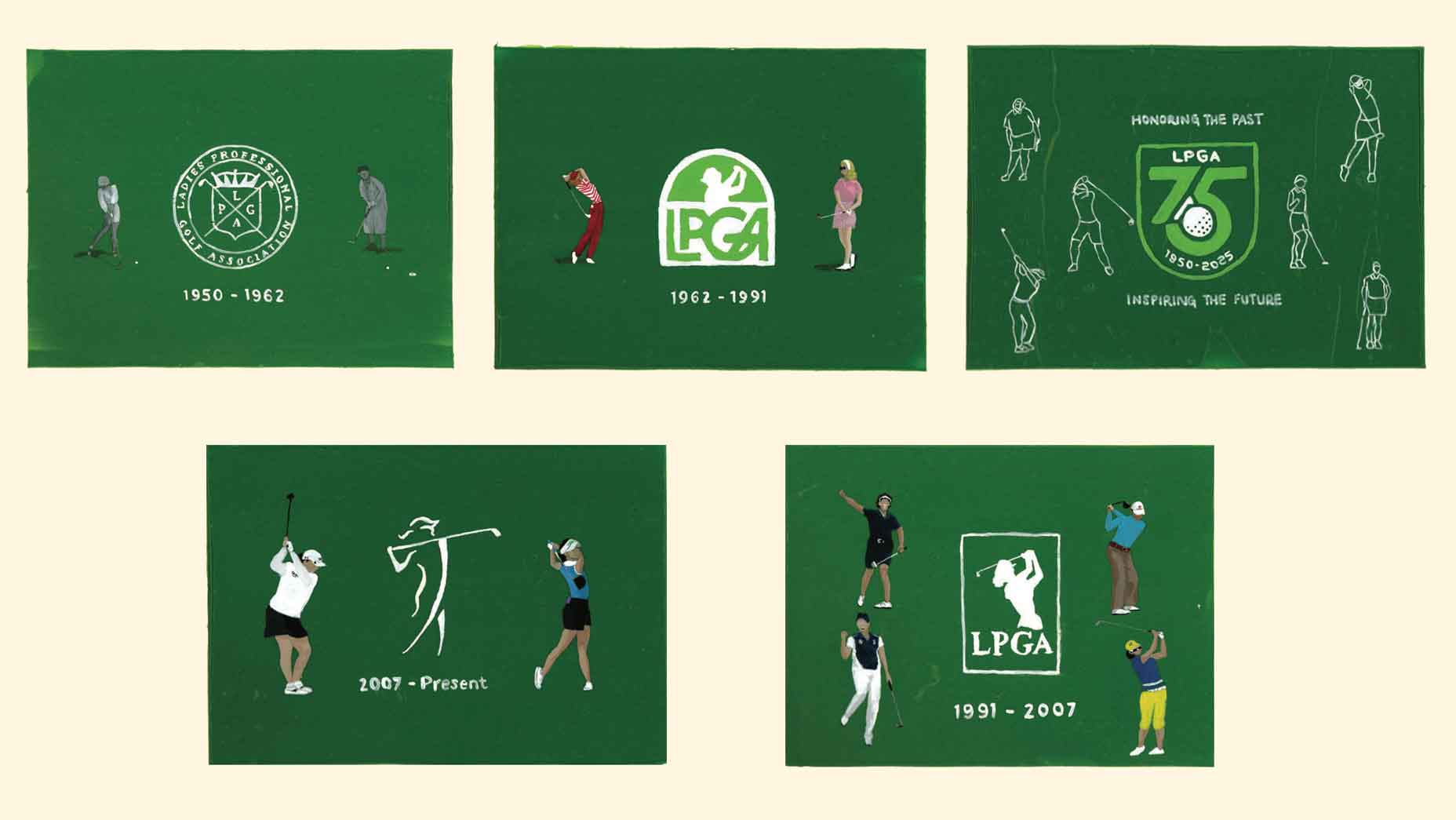Mental strength is the ability to make the right adjustments. On the golf course, we are constantly adapting. The best players make the right adjustments and those that struggle do not.
To improve performance, the baseline (or noise) in the brain must be at a low level. If the noise or thoughts are high, it will be difficult to hold a target. Because golf is a target sport, it is vital the target is held for each shot.
To simplify the language, we can code our brain frequency to green, yellow, and red:
Green: In the zone, low frequency. You feel relaxed, calm, and are thinking clearly.
Yellow: A little stressed and anxious. You may have some negative inner dialogue mixed with positive.
Red: High frequency. Intense thoughts. Lots of negative dialogue and difficulty thinking clearly.
How to combat negative thoughts on the course
When the brain is in the Red zone, it is at the farthest point from being in the zone. In the Red state, you are only performing at 5% of what you are capable of. When in Yellow, you are performing at 40% and when in Green you are at 80%. This is the reason it is so important to get to Green when playing.
This major winner is invested in the mental game. His best tip is 1 wordBy: Nick Piastowski
Remember, the brain is the command center for the muscles. When you are Green, you can access your senses, which helps your muscle sequence, applying the correct force, and the ability to see and hold your target.
It’s important to accurately identify your current baseline. Using the Green, Yellow and Red language will allow you to identify your current state and make the appropriate adjustment. Below are ways to help maintain or lower your baseline to Green.
Activate your senses (sight, feel, sound, taste, smell)
The practice of using your senses places you in the present moment, which can keep or move your baseline to Green for optimal performance. This is ideal to practice in between shots.
Feel: Touch an object and name three feels. For example, touch a golf ball and note the feel of the dimples, the smoothness, or any scratches.
Sound: Name three sounds around you, like cars passing, birds chirping and lawnmowers.
Sight: Name as many observations of the hole you are playing as you can, like tree types, flower beds and bunker shapes.
What are some quick ways to dial up your driver distance? | Fully Equipped MailbagBy: Ryan Noll
Taste: When eating a snack, identify as many flavors and textures as you can (chewy, salty, soft, etc.)
Smell: Take inventory of surrounding smells, like food or gasoline.
How to return to Green from Yellow and Red
If you recognize yourself in Yellow or Red, use these tools to lower your baseline back to Green:
Release your tension: On a scale from 1-10, squeeze the club until you reach a 10 and slowly reduce until you feel a 2. Repeat at least one time each hole or for each shot.
Focus on the good: Name three positives after a shot. If that feels hard, try something like this: ‘I just hit several good shots.” “I saw what the ball did going past the hole.” “I can still make birdie/par/bogey.”
Talk with your eyes: Rather than thinking, “I want to hit it on the right edge of the cup, try using what you see as a guide. Instead, “I want to roll the ball over the yellow blade of grass. It will curve slightly and enter the hole from the right side of the cup.”
Using these tools will allow you to gain conscious control of your thoughts, and help move you back to Green.
Ultimately, knowing your current baseline is vital in knowing how to make the appropriate adjustment. The more in-tune you become, the better the adjustment and performance, and you know what that means: better shots and lower scores!
Carla Overhiser is the Lead Teaching Professional at The Breakers John Webster Golf Academy in Palm Beach, Fla.












